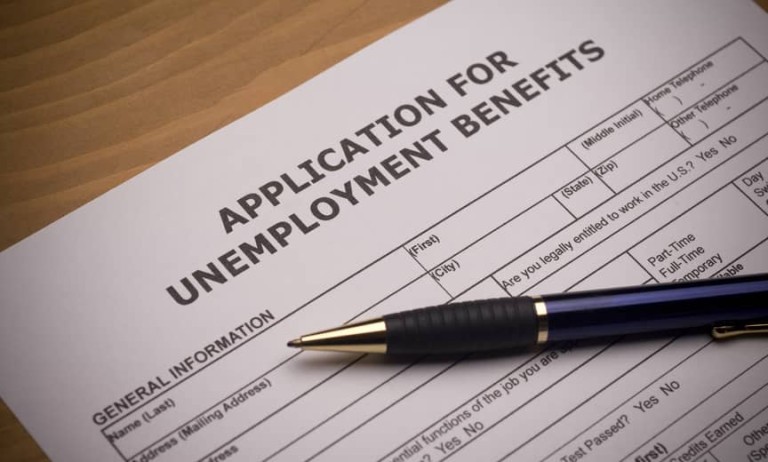- Human Resources
- Article
- 6 min. Read
- Last Updated: 03/03/2021
Unemployment Fraud: Fraudulent Benefit Claims

Table of Contents
With an uptick in individuals filing for unemployment benefits due to COVID-19, there has also been an increase in fake unemployment claims. According to the Federal Bureau of Investigations, criminals filing fraudulent claims have been obtaining stolen identities using a variety of techniques. It's important to understand what unemployment fraud entails, identify potential vulnerabilities, and know how to respond to this type of fraud.
What is unemployment fraud?
Unemployment insurance fraud is knowingly misrepresenting or concealing information about an employee's work and earnings to receive or increase unemployment insurance payments.
Both employers and employees can commit intentional unemployment benefits fraud, although criminals can also file fraudulent claims pretending to be an individual who isn't actually filing for unemployment. The Federal Trade Commission (FTC) has reported a recent increase in such activity, noting that these individuals are filing claims by using the names and personal information of people who haven't filed for unemployment benefits.
Ongoing investigations from the FBI have identified that these criminals obtain information using a variety of techniques to file erroneous claims, including:
- The online purchase of stolen personally identifiable information (PII)
- Previous data breaches
- Computer intrusions
- Cold-calling victims while using impersonation scams
- Email phishing schemes
- Physical theft of data from individuals or third parties
- Information from public websites and social media accounts
While the FBI's investigation is ongoing, this fraudulent activity is inhibiting the delivery of benefits to people who actually need them, costing states hundreds of millions of dollars, and causing lasting damage to impacted individuals' financial health.
The FBI noted that "Many victims of identity theft related to unemployment insurance claims do not know they have been targeted until they try to file a claim for unemployment insurance benefits, receive a notification from the state unemployment insurance agency, receive an IRS Form 1099-G showing the benefits collected from unemployment insurance, or get notified by their employer that a claim has been filed while the victim is still employed."
How employers and employees commit unemployment benefits fraud
Both employers and employees can commit intentional unemployment fraud as outlined by state unemployment insurance laws. Employer fraud commonly includes actions to avoid tax liability or establishing a false employer account to enable fraudulent unemployment claims.
Employees (or claimants) can commit unemployment fraud by:
- Knowingly submitting false information
- Collecting benefits when the employee is ineligible to do so
- Not being able and available to work while certifying benefits under state law
- Not reporting wages or income while collecting benefits
How can you detect unemployment fraud?
Employers play a key role in combating unemployment insurance fraud. To help you identify potential nefarious activity and guard against fraudsters, remember to:
- Be on the lookout for public tips posted online or from trusted government agencies (FTC, FBI, etc.).
- Provide prompt and accurate new-hire reporting, which state agencies use to compare against unemployment claims.
- Check regular unemployment charge reports and notices from the state unemployment agency to ensure you're not being charged for fraudulent unemployment claims.
- Regularly conduct quality control audits.
- Ensure your company's written policies address the security and appropriate use of employee-related PII, as well as customer or client PII.
What is the penalty for fraudulent unemployment benefit claims?
States are required and expected to enforce their own unemployment insurance laws. This includes assessing a fine of no less than 15 percent of the total fraudulent payment. Depending on the state, additional penalties for fraudulent benefits claims can include:
- Criminal prosecution with fines and/or incarceration
- Repaying fraudulently collected benefits
- Forfeiting future income tax refunds
- Permanent loss of eligibility for unemployment compensation
Reporting unemployment fraud
Many fraud victims are unaware that a false claim has been filed until their employer receives a notice that they've filed for it. It's important to act fast once you or an employee detects unemployment fraud, since this indicates that a criminal has access to sensitive personal information (Social Security number, date of birth, etc.). Unemployment benefits fraud is handled by the state and should be reported to your state's unemployment benefits agency. Employees need to know how to report unemployment fraud, which is why you should encourage them to take the following steps:
- If they haven't already done so, they should notify you, the employer.
- Call the appropriate state fraud hotline and document any names of people they speak to and confirmation numbers.
- Report the fraud online to the FTC and get assistance with developing a recovery plan to avoid further identity theft, including pulling credit reports, adding credit freezes, and other steps.
- If employees check their bank accounts and see that they received benefits they never applied for, they should immediately report it to the appropriate state unemployment agency. If they receive calls, emails, or text messages telling them to wire money, send cash, or transfer money onto gift cards, direct them to ignore and report these communications.
Cybersecurity and fighting unemployment fraud
Taking steps to avoid unemployment fraud includes revisiting your business's larger cybersecurity measures. A sound cybersecurity plan includes protecting computers, servers, mobile devices, electronic systems, networks, and data from malicious attacks. Even if you have a remote workforce, employees working from home can help maintain security from their offsite locations — including regularly changing passwords, reporting potential phishing emails that contain suspicious links, and securing computers and mobile devices using an updated operating system and the latest anti-spyware and anti-virus software.
COVID-19's impact on the economy will continue to result in more unemployment insurance claims than usual, particularly since many federal relief programs are no longer in effect. But even without a nationwide crisis, there's always the potential for unemployment benefits fraud to occur.
Tags







